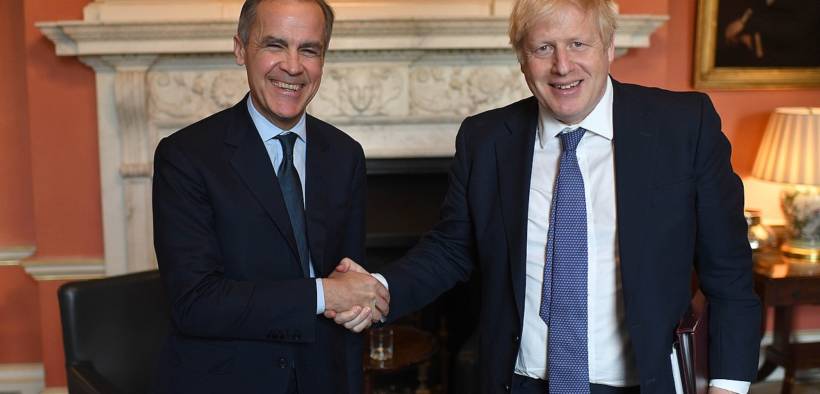Foreign Nurses Saved Boris Johnson, Now He Wants to Increase Their Healthcare Fees

After publicly praising two foreign nurses, Prime Minister Boris Johnson is seeking to increase the amount they pay for healthcare.
One of the crown jewels of the United Kingdom is its National Health Service, a public healthcare system free at the point of service. And, a growing number of workers staffing the healthcare system are foreigners, according to official records, 7.6% of NHS staff are from outside the European Union.
Since the outset of the coronavirus pandemic, healthcare workers have been praised for their hard work in the face of a deadly virus, often being heroized for their efforts. For Prime Minister Boris Johnson, this phenomenon became personal when he was admitted to the ICU for complications from coronavirus.
Johnson went so far as to publicly thank two nurses, one from New Zealand and another from Portugal for their role in his recovery. But despite his praise, Johnson finds himself embroiled in a political debate where he is arguing to increase the surcharge every non-EU national must pay for the NHS.
Many in his opposition want the surcharge fees completely scrapped, but Johnson has asserted he wants the fee increased from £400 to £624 a year.
“The proposed increases will serve to exacerbate hardships and will act as a significant barrier to individuals considering working in the UK at precisely the time that they are needed most,” wrote Donna Kinnair, Chief Executive and General Secretary of the Royal College of Nursing.
Key Workers?
All over the world the coronavirus pandemic has centered the importance of key or essential work. The first group of people tossed in this category are health workers, and the British public has been quite complimentary with weekly claps and record-breaking donations.
But critics of the government have noted the talk does not match up to the treatment workers are receiving on the front line.
“These staff are also already paying tax and national insurance like everybody else – meaning they are being charged twice for NHS treatment,” Dr. Chaand Nagpaul, The British Medical Association council chair, told The Guardian.
And the opposition to the surcharge extends to other elements of government policy, including the announcement of a bereavement scheme which would allow the family of some healthcare workers to stay in the country if their loved one died fighting coronavirus.
Initially the scheme did not include low-paid workers. But a video of a Syrian refugee working as a hospital cleaner went viral after he directly called out the Prime Minister.
“The least you can do, if we die, to give our families indefinite leave to remain (permanent residency),” said Hassan Akkad.
Deciding Who’s Human
One of the most striking aspects of the British government’s policy and the rhetoric surrounding it is the demarcation of where the debate starts. Currently, the opposition Labour Party has only asked the government to reverse the surcharge for health workers.’
However, Labour’s call to scrap the fee excludes thousands of foreigners living in the UK.
Commentator Aaron Bastani tweeted opposition to Labour’s policy and said, “this [the NHS surcharge] is an extra tax for simply not being born here. That’s what it is. The idea that the best a progressive party can do in the context of a pandemic is an exemption for a sub-set of the labour force is absurd.”
Internationally, the coronavirus pandemic has made low-skilled foreign workers increasingly insecure. In the United States, the economic shock from the virus has left foreign workers under threat of losing their right to stay in the country after losing their job.
Yet, from Germany to the United Kingdom to Singapore foreign workers are needed to work in agriculture, construction, and food processing jobs undesirable to domestic laborers. Unfortunately for these workers in the United Kingdom, the welcoming hand to work only extends so far.







